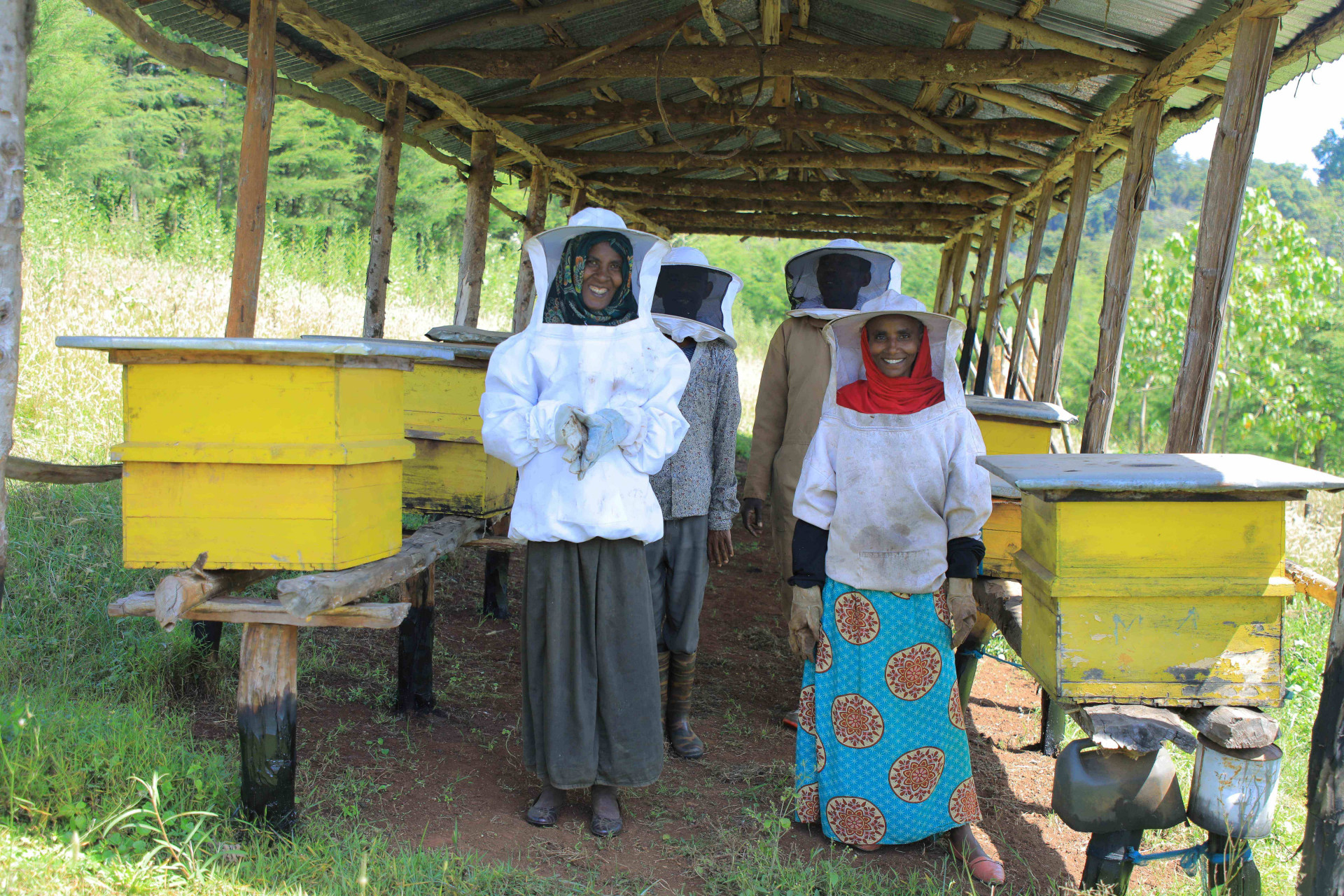In Jimma, Ethiopia, bees aren’t just producing honey—they’re generating income. And they’re helping entire communities rise out of poverty with them.
That shift began in 2023, when 25 farmers, men, women, and youth, came together to form the Abafira, Ahimadin, and Hafiz Honey Producer Group. With training, tools, and support from the Advancing Conservation, Agriculture, and Livelihoods Project—led by Digital Green in collaboration with the Woreda Agriculture, Job Creation, and Food Security Offices, and funded by the David and Lucile Packard Foundation—they started to transform how they farmed and earned.
The group received training in modern beekeeping techniques, access to a hectare of land for their apiary, and began scaling up. With over 500 hives now active, they harvested 3,450 kg of honey in one season. Of that, 2,650 kg were sold, generating over 2.1 million ETB in income. That’s nearly 7 kg of honey per hive—a strong return in just one production cycle.
The impact has been visible. Group members now have the skills and stability to invest in their families and futures. Their honey has been showcased in exhibitions, they’ve earned awards, and in the community, they’ve earned a new nickname: the source of honey.
“Before, I thought of honey as something small. Now, it feeds my family, pays for school, and gives me pride,” says one member of the producer group. “We didn’t just learn how to harvest honey, we learned how to work together and build a future.”
Their next goal is to become a licensed cooperative, enabling them to sell their honey under a registered brand, including internationally. They’re also planning to expand into livestock, with a beef-fattening project already in the works.
Stories like this remind us that true development comes from access, not aid. When local producers have the tools and knowledge to scale their skills, the impact is sustainable and the potential for growth is exponential.
